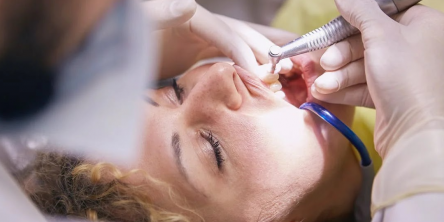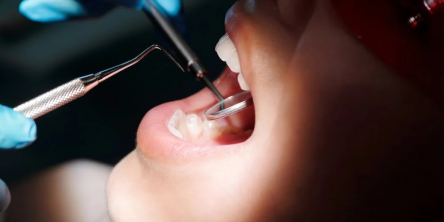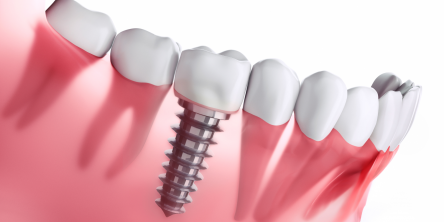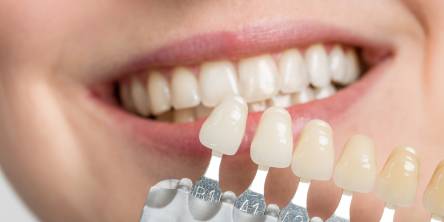6 Effective Treatments for a Gummy Smile
A genuine smile is lovely, with your lips sweeping upward and your sparkling eyes crinkling. It represents happiness and human connection.
Some people's joy may be hampered by a condition known as a gummy smile. It occurs when your smile exposes more of your gums than you would like. Excessive gingival display is a clinical term for it.
Whether you think your smile is "too gummy" is largely a matter of personal preference. However, you should be aware that it is fairly common.
According to some experts, as many as 10% of 20- to 30-year-old adults consider their smiles gummy. Furthermore, more women than men believe their smiles reveal too much of their gumline.
6 Treatment Options for a Gummy Smile
1. Oral surgery
If your gums cover too much of the surface of your teeth, your dentist may recommend a gingivectomy. This procedure, also known as gum contouring, involves the removal of excess gum tissue.
If your insurance company deems gingivectomy to be elective or cosmetic, you may be required to pay the full procedure cost. This could cost between $200 and $400 per tooth. The good news is that the effects will likely be long-lasting, if not permanent.
2. Lip repositioning surgery
If your lips cause your gummy smile, your doctor may recommend lip repositioning surgery. The procedure shifts your lips' position in relation to your teeth.
A section of connective tissue from the underside of your upper lip is removed. This will keep the elevator muscles in your lip and nose from raising your upper lip too far above your teeth.
In many cases, the results are permanent, but relapses are possible.
This procedure's cost varies depending on your doctor and where you live. Lip repositioning surgery will cost you between $500 and $5,000 on average.
3. Orthognathic surgery
If your jaw is contributing to your excessive gingival display, your dentist or oral surgeon may advise orthognathic surgery. The length of your upper and lower jaws will be balanced with this procedure.
You may need to see an orthodontist as well as a maxillofacial surgeon. One or more scans of your mouth will most likely be performed to determine where your jaw has grown too far.
Orthognathic surgery is significantly more expensive than less invasive procedures. If your insurance does not cover this procedure, the cost could range from $20,000 to $40,000.
4. Temporary anchorage devices
If you don't want to have gum surgery, ask your dentist if a temporary anchorage device (TAD) is a good option for you. This device can assist in repositioning your teeth, potentially reducing a gummy smile.
TADs are less invasive and more affordable than surgery. They usually cost between $300 and $600 each.
5. Botox
If your gummy smile is caused by moving your lips too far up over your gumline when you smile, botulinum toxin, also known as Botox, injections may be effective.
In a 2016 study, 23 women with gummy smiles had the elevator muscles in their lips paralyzed with Botox. After two weeks, 99.6 percent of the women noticed an improvement in their smiles.
Botox injections are less expensive and less invasive than surgery. On average, each injection costs around $397.
6. Hyaluronic acid
Injections of hyaluronic acid fillers are another option for temporarily correcting a gummy smile caused by hypermobile lips. For up to 8 months, the fillers restrict the movement of muscle fibers in your lips.
It is critical to understand that injecting fillers carries risks. Although complications are uncommon, it is possible that your blood supply may be compromised, resulting in tissue loss, blindness, or stroke.
The immune system of your body may react to the hyaluronic acid and form a nodule or granuloma.
In comparison to surgical options, hyaluronic acid fillers are inexpensive, costing an average of $682 per vial.
Similar Articles
Most individuals have heard the term "dental crown" before. However, few people understand crown lengthening or why it is necessary. Dental crown lengthening is frequently an essential step in preparing your teeth for a dental crown.
Dentists successfully use dental sealants to prevent patients' teeth from serious deterioration in many cases. This inexpensive prophylactic medication is usually recommended for younger children, but it can also benefit adults.
Pregnancy is undoubtedly an exciting period in one's life. All expectant mothers will agree that as they find out they're expecting, they instantly begin to question if any things were previously safe but are no longer because of the baby. This is particularly true for dental operations.
Cosmetic dentistry has grown in popularity recently, allowing people to improve their smiles and confidence. Despite its rising popularity, cosmetic dentistry has become saturated with myths and misconceptions. This article will debunk the top seven myths, shedding light on the reality behind these common misconceptions.
When you lose an adult tooth, it is critical for your dental health that you replace it. If you don't, you risk teeth moving, increased oral instability, and tooth loss. It could harm the underlying bone. An endosteal implant, often known as a dental implant, is one option for restoring missing teeth.
A smile makeover is a process that improves the appearance of the smile by combining various cosmetic dental procedures, such as braces or Invisalign to correct misaligned teeth, teeth whitening to brighten up discolored teeth, and a dental crown or porcelain veneers to cover unsightly flaws like chips or discolored spots.
Dental veneers are one of the most expedient ways to achieve the bright, healthy smile of your dreams. Whether you are self-conscious about stained teeth or want to conceal a chipped tooth, veneers can provide a satisfying solution.
When you experience dental pain, you should be aware of whether you require emergency dental care and whether your dental insurance policy covers you. Not all dental disorders necessitate rapid treatment. A toothache, a damaged tooth, or pain from a dental crown are severe dental problems, but they are not always emergencies, so it is best to plan ahead of time.
Tooth decay, commonly known as dental caries or cavities, is a common oral health problem that affects people of all ages. While much has been discovered about the causes and prevention of dental decay, numerous myths still exist









